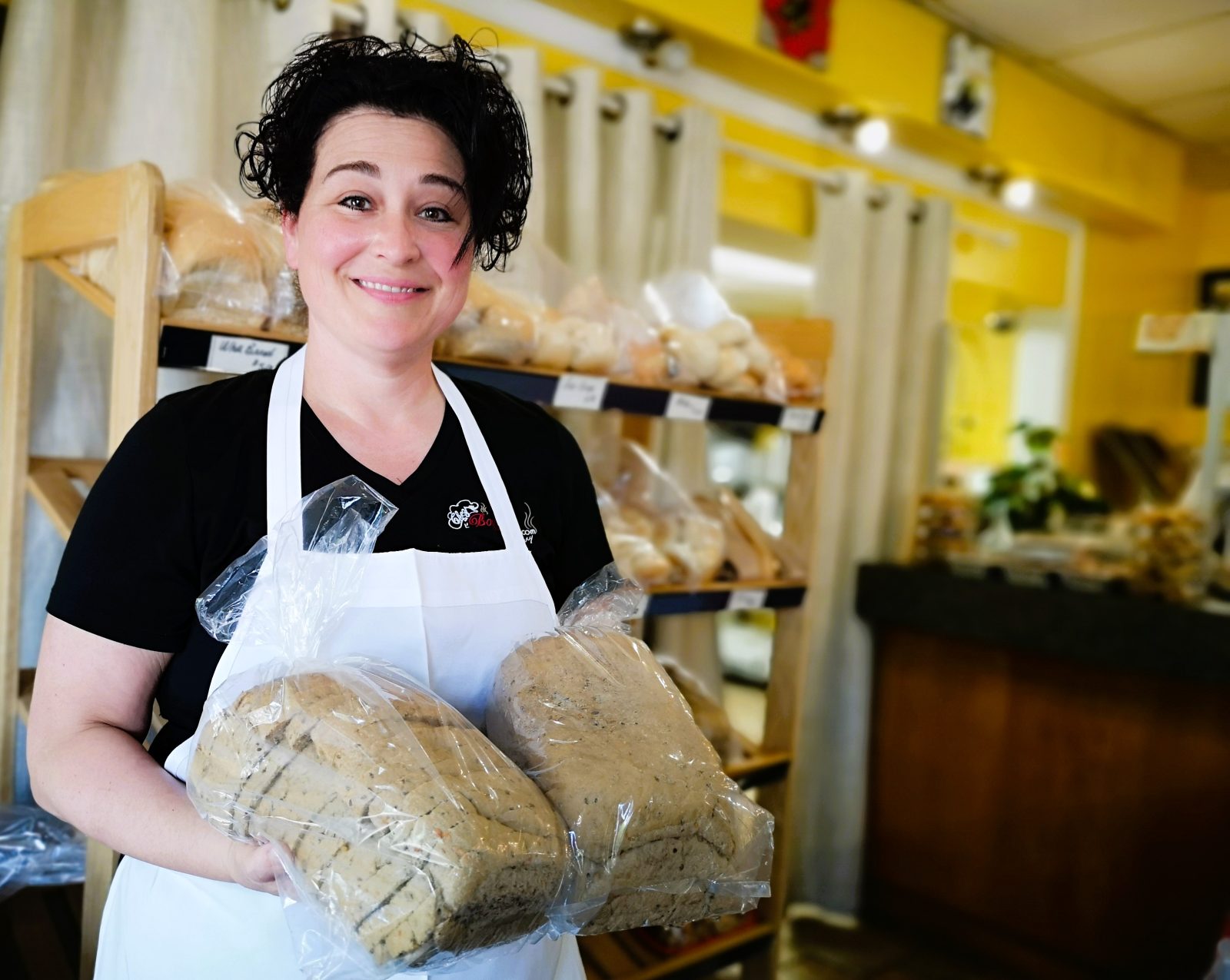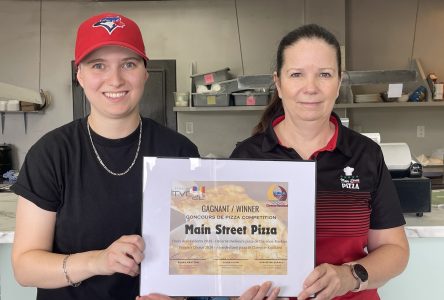The world of bread is a diverse one.
That includes Nepalese paratha made with whole-wheat atta dough, properly fermented San Francisco sourdough with an “ear” baked crunchy from a measured and expert slash with a razor blade, or thin-crusted Afghan bolani stuffed with potatoes and leeks and served with yogurt.
At the other end of the spectrum are simple sliced sandwich loaves, often the best for grilled cheese or a classic PB & J snack – both for kids of all ages.
In this part of the world, and perhaps somewhere in between the artisanal variety and the mundane is a unique bread that Chez L’Boulanger bakes daily and calls “Old Fashioned.”
According to owner and baker Julie Charbonneau, the loaf is among the bakery’s best selling products in what is a wide range of baked goods and ready-made foods.
The name reflects an appeal to old-timey, comfort-food goodness, according to Charbonneau.
“It’s called Old Fashioned because it’s home-made and grand-maman-style,” she says.
Founded more than a decade ago by Charbonneau and a partner, Chez L’Boulanger, located on Laurier Street, prepares fresh baked goods like the Old Fashioned bread, frozen meals, lunch boxes and special-occasion meals.
Peer into their chest freezers and cooler cases and you’ll discover Swedish meatballs and chicken à la King as well as humbler chili and veggie quiches. Lasagna as a ready-made meal for busy young families is extremely popular as is the chicken pot pie, says Charbonneau.
In terms of sweets, there’s cookies and Danish, but the bakery also makes pouding Chômeur, a depression-era “poor man’s cake” with maple syrup that you find at a sugar shack.
The majority of Chez L’Boulanger’s business comes from catering, however. Lots of catering.
“This summer is booked with several weddings,” she says, adding that they are busy catering for funerals as well.
Catering, in fact, determined the trajectory that her business followed, re-routing her original vision to have a shop, perhaps like an M&M Food Market, but focussed on healthier foods. They started out serving fresh-brewed coffee and they had a sandwich bar, but the business model soon changed.
“Catering became very popular, so we switched to that when we couldn’t do both,” says Charbonneau.
It’s a clear case of going where the business was rather than fighting to fit into a pre-determined shape. That too is a business reality.
“In catering, there’s little loss. You get an order to feed 100, you cook for 100 and you’re paid for 100. There’s no waste.”
A passion for fresh, healthy food still lies beneath that pragmatic approach.
Charbonneau says that she has always just loved to cook. She learned the baker’s trade starting in 2003 with an existing bakery she took over with a partner, a professional baker, in Carleton Place. They had the location for about three years before deciding they wanted to move to a Francophone region.
Most of the foods – Charbonneau says 90 per cent – are made from scratch in-house and there easily several dozen products, from cookies to tourtière. She says they pull back on the salt and use no preservatives in their cooking and baking.
Building variety, however, was incremental: her first customers said there wasn’t enough choice, so the business model shifted again, she says.
“We needed to make more variety of goods but be able do it fast. Now we have lots of variety including breads and pizza doughs, but we also need lots more staff. That makes it difficult.”
She adds that being a baker, often with a very early morning rising, is a tough, physical job.
“There’s heavy lifting, and it is hard work. That’s not for everyone,” Charbonneau says.
The Old Fashioned is, it seems, for everyone, but it also represented a shift in demand: finding there wasn’t a strong customer preference for whole wheat bread, they added a rye-based multigrain bread to their repertoire, though it has a bit of white flour too.
“We made both for a while, but people seemed to prefer the rye. It’s a unique bread, made with organic flour, that you can’t generally find around here,” she says. “It has become very popular.”
If rye breads tend to be a bit drier, the Old Fashioned is quite moist yet toasts beautifully crisp and holds butter deliciously.
Grown primarily in the European Union, Germany and Poland, rye is a member of the grass family and is one of few grains that can make leavened bread.
Despite the fact we’re famous for our rye whisky, Canada only grows only about two per cent of the world’s rye production but as a hardy cereal crop for harsh weather, it thrives in colder climates like Canada’s.
The rye flour Charbonneau bakes with comes through Montreal from Germany (the world’s second largest rye cereal producer), but during Covid sourcing the flour was difficult – and customers were disappointed when the Old Fashioned was on Chez L’Boulanger’s shelves less frequently.
In terms of nutrition, breads made with whole rye are a good source of dietary fibre, though the unique flavour and crunchy snap of texture are important qualities of the Old Fashioned.
“Once you try this bread, you don’t go to any other bread,” says Charbonneau, noting that a batch of 25 loaves will sell out in a day.
For anticipated busier days, she instructs her bakers to make 30 loaves, but they will be prepared with the passion for food and baking that defines Chez L’Boulanger.
“We bake home-made goods for our customers,” Charbonneau says. “How I bake for my kids is how I bake here at the bakery.”
Food writer Andrew Coppolino lives in Rockland. He is the author of “Farm to Table” and co-author of “Cooking with Shakespeare.” Follow him on Instagram at @andrewcoppolino.



